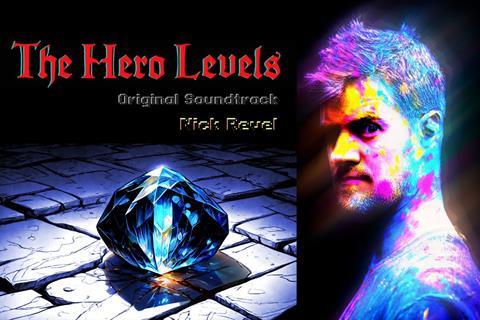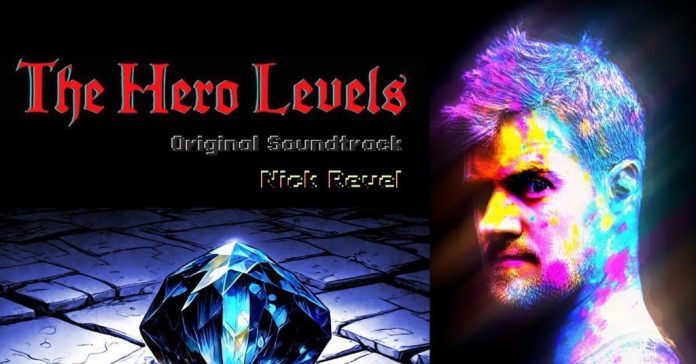Violist Nick Revel shares how his love of video games inspired his latest project of etudes and fantasy storytelling, which culminates in a new original soundtrack recording

Revel photo: Ryan Scherb
Discover more Featured Stories like this in The Strad Playing Hub
I loved playing video games as a kid. My favourites were story-based role-playing games (RPGs) like Chrono Trigger, Final Fantasy IV, V, and VI, Seiken Densetsu 2 and 3, and The Legend of Zelda: A Link to the Past for the Super Nintendo Entertainment System (SNES). Those games flled me with a sense of curiosity and wonder as I ventured through fantastical worlds, each save point marking hard-won progress.
However, I didn’t realise until adulthood how deeply they depended on music to captivate the player—or how profoundly those soundtracks would shape my own compositional voice.
With the help of my vivid imagination, those melodies smoothed out clunky 90s graphics, rhythm-energised action sequences, and harmony-filled plot holes, dropping me right into the heart of the story. Despite the technical limits of early game audio, these themes are among the most covered and arranged pieces in video game history.
Full-orchestra tours celebrate the works of Yasunori Mitsuda, Nobuo Uematsu, Hiroki Kikuta, and Koji Kondo, often arranged by the very people who grew up playing those games. When I pick up one of them today, I’m instantly transported back to endless summers with my cousin Jan, exploring new worlds, grinding for experience, and leveling up.
Fast forward to now: I love composing (shoutout to De Snakes Composer Group!) and have four albums’ worth of music. When it’s flowing, the process feels a lot like playing video games—full of exploration and discovery. But it can also feel overwhelming unless I have an anchor point.
To help guide my process, I can allow vivid imagery to appear in my mind when I hear sound. Even if the music isn’t formally programmatic, I often follow and translate those mental images into music as if I am scoring a silent flm, and writing for actual visuals or narratives makes the process even more exciting.
Enter The Hero Levels—25 Fantasy Etudes to Slay Evil. Drafted while feverish and delirious at 13,000 feet on the Ecuadorian Chimborazo volcano in 2023, it is a nine-book series for violin, viola, and cello in three diffculty levels—Story, Noble, and Legend. Across 25 etudes and matching audio play-along recordings, players step into the role of the hero in an original fantasy adventure.
Each etude connects directly to a scene in the story, challenging players with technical passages, extended techniques, improvisation, and theory work. The books combine three elements—music, story, and audio—accessible via QR code. All versions share the same story, artwork, and recordings, making them perfect for ’multiplayer’ mode. Designed for learners at any stage, The Hero Levels turns practice drudgery into an imaginative quest.
The story, told in the second person, is central to the project. It’s a classic hero’s journey, beginning in your peaceful, familiar home of Amberglade. By the end of the first of six chapters, you’ve already embarked on your first quest, faced an unexpected boss battle, witnessed the terrifying form of Void, your ultimate adversary, and been warped through time and space to Anchorstone Harbor, a far-away place completely unknown to you.
There, you meet Arlith, your mentor and guide through this extraordinary world. Along the way, you collect puzzle pieces, like a trail of crumbs, that slowly reveal the true origins of your mentor, your long-lost parents, and the other main characters. Your final trial sends you back into the supernatural Void Realm, where you must confront and end the vengeful spirit of Void.
In creating this world, I drew upon the wonder and exploration I felt as a kid playing games—one I hope players will share—in a thrilling convergence of composing, storytelling, pedagogy, and audio production. Part of developing the project was recording demo performances of each etude so players could hear the solo part in context. This meant I had to seriously practise my own music.
In etude 21, Dance Battle—a fearsome duel with a vampire flled with gothic melodic lines, organ leads, and intricate drum kit beats—I thoughtfully practised the complex shifting and string crossings away from the audio play-along. Once I’d mastered the technical challenges, the payoff was replaying the level over and over, experimenting with articulation, dynamics, vibrato, and pacing to give the music a truly electric vibe.
Once again, just like in gaming, I was dropped into the scene, able to savor the mood as I explored the contours of my own sound. I’d never experienced that kind of narrative connection with Mazas or Kreutzer etudes, even after hours of practice. It wasn’t just about the sense of earned progress—I was inside the story, my viola acting as the game controller.
I was inside the story, my viola acting as the game controller
In the final phase of the project, I repurposed the demo play-throughs into The Hero Levels Original Soundtrack (Imaginary Animals, 2025), reimagined with 31 polished mixes and album-friendly arrangements. This is the soundtrack to The Hero Levels—A Fantasy Novella, which features the same comic book–style panels and story from the etude books, with ’listen to’ prompts throughout. In this culminating expansion, my aim was to shift the focus toward the music, using the story as its supporting frame.
I’m eager to see how listeners will connect with this format in a world where CDs are ancient relics and dedicated listening time is a rare luxury.
As the many arcs of this project unfolded, piece by piece, logical and ordered in retrospect, I felt free and inspired as I did discovering the fantastical worlds in my favourite video games. By weaving story and music together, I hope to rekindle that same sense of creative exploration in anyone who embarks on the Hero Levels, whether as a student learning the etudes or as a listener relaxing at home with the novella in hand and the music drawing them into their own magical world of dragons and heroes.
The video is an excerpt from track 5, Olde Baeworth’s Tavern from the album.
The Hero Levels Original Soundtrack will be released on 29 August 2025 on Imaginary Animals.
Playing
In The Best of Technique you’ll discover the top playing tips of the world’s leading string players and teachers. It’s packed full of exercises for students, plus examples from the standard repertoire to show you how to integrate the technique into your playing.
Teaching
In the second volume of The Strad’s Masterclass series, soloists including James Ehnes, Jennifer Koh, Philippe Graffin, Daniel Hope and Arabella Steinbacher give their thoughts on some of the greatest works in the string repertoire. Each has annotated the sheet music with their own bowings, fingerings and comments.
Calendars
The Canada Council of the Arts’ Musical Instrument Bank is 40 years old in 2025. This year’s calendar celebrates some its treasures, including four instruments by Antonio Stradivari and priceless works by Montagnana, Gagliano, Pressenda and David Tecchler.



